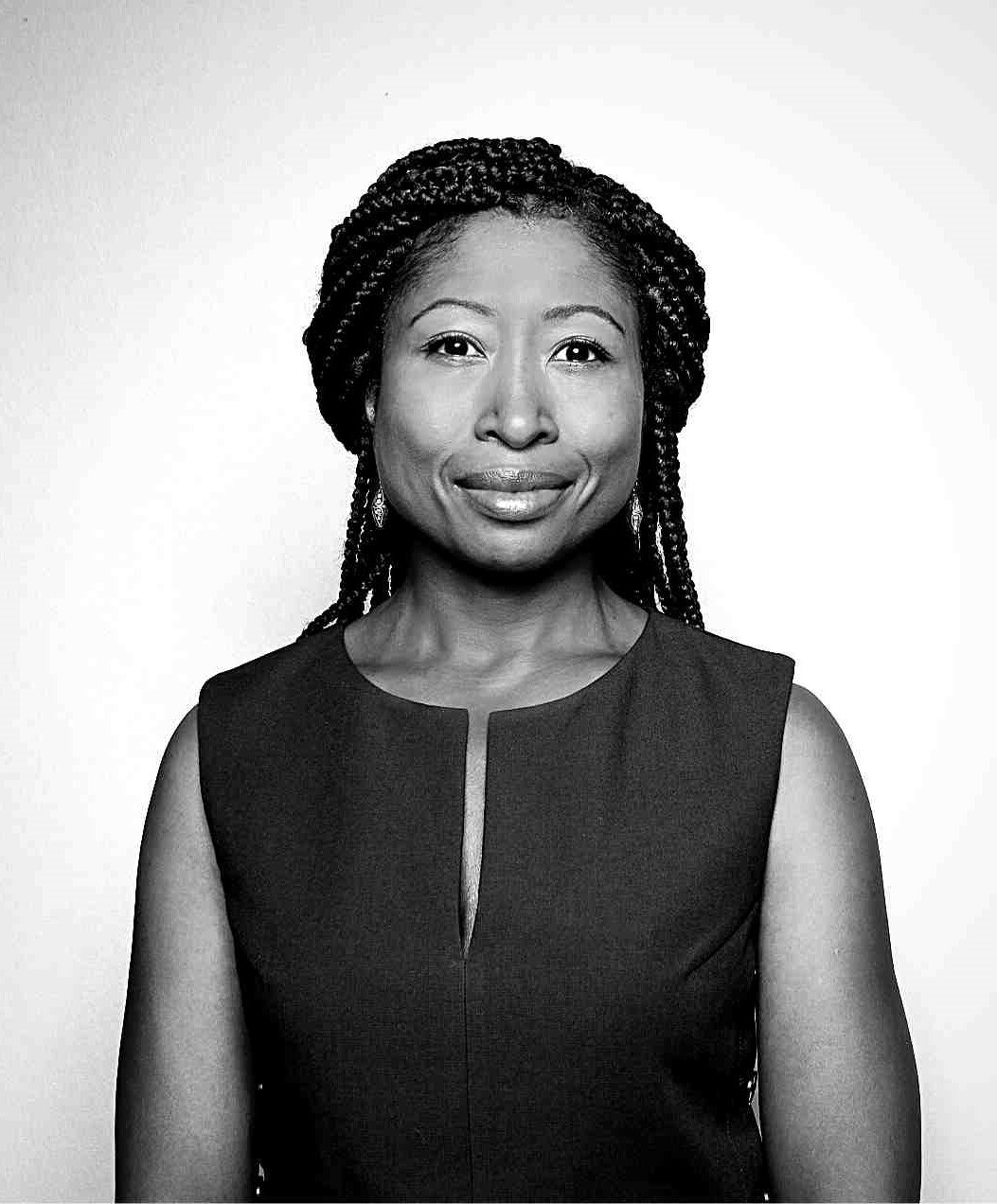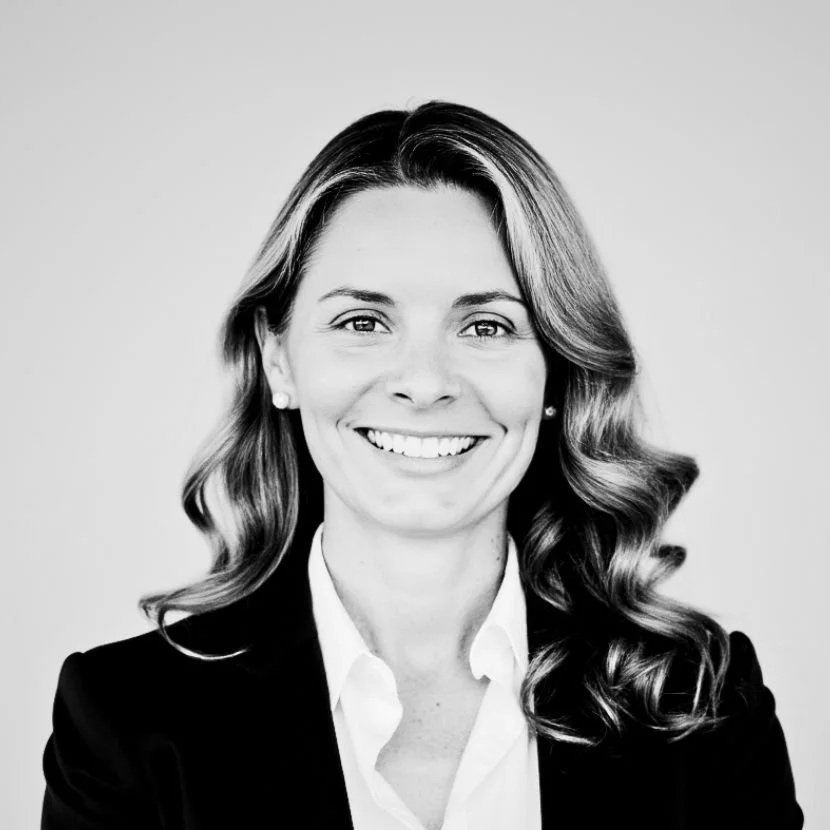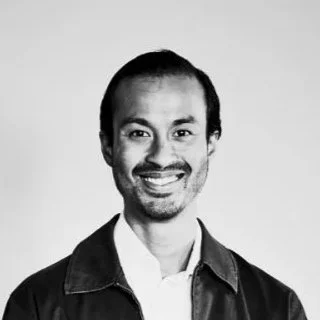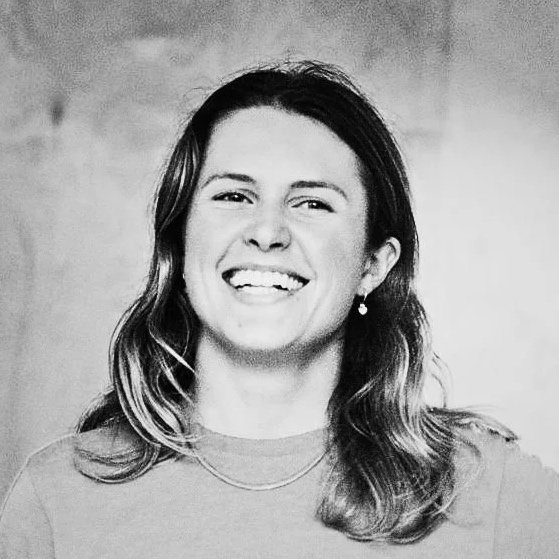Dr. Angela Jackson On Scaling Opportunities To Upskill Workers Through Targeted Philanthropy
Dr. Angela Jackson is a Managing Partner at New Profit, a Boston-based venture philanthropy firm where she leads the Future of Work strategy and investments.
She currently leads New Profit’s $15M Future of Work global fund to invest in entrepreneurs and companies developing innovative technical solutions to upskill low-income and entry-level workers at scale. Angela recently launched a $6 million Future of Work Grand Challenge, powered by XPRIZE, MIT Solve and JFF, to rapidly reskill 25,000 displaced workers into living-wage jobs in the next 24 months. Dr. Jackson holds a doctorate from Harvard University where she was a Dean Kathleen McCartney Fellow.
Angela discusses the rapid evolution of skills required to succeed in the labour force and the role of philanthropy in generating innovative methods of upskilling workers.
Highlights from the interview (listen to the podcast for full details)
[Anika Horn] - Dr. Angela Jackson, social entrepreneur, seasoned corporate executive and now partner at New Profit, thank you so much for being here today.
[Dr. Angela Jackson] - Thank you for having me, it is exciting to talk to your audience.
I'm especially excited because the area of work that you are in is really not something we talk about all that often. It's really bringing people into the future of work, [especially] people that have challenges. But I'm already getting ahead of myself! Angela, tell us a little bit more about what it is that you do at New Profit?
I lead The Future Of Work Initiative and strategy at New Profit, and New Profit is a 20-year-old venture philanthropy firm. We've always been interested in investing in breakthrough entrepreneurs who are solving complex social problems. With The Future of Work, we're really thinking about how we connect the mass majority of workers who don't have access to future work skills to opportunities to be upskilled, so that they can really take advantage of these opportunities that now exist.
Tell me a little bit more about the challenges for those of us who aren't even aware that this is an issue? Can you help me understand where these problems arise and how you're trying to tackle them?
I like to say the future of work and the future of workers is the future of all of us. If you think about when most of us went to college, high school or graduate school, many of the jobs and opportunities that exist now didn't exist then, so we weren't trained for them.
Now, we're all faced with this idea of lifelong learning, [but] how is it accessible, how do you pay for it, and then how do you find the time to actually do it? Really who is most impacted by that [although I think we're all impacted] are people who are living on the margins, who might be working for hourly wages and part-time jobs.
They're really grappling with how they even know about this new economy, these new skills and again who's going to pay for it.
Tell us a little bit more about how New Profit is engaging entrepreneurs and companies to help tackle those challenges? What are you looking for?
Well, the first thing that we're looking for are entrepreneurs with bold ideas that are willing to think about their end users. Many times, when we have entrepreneurs, they're creating products for people that they'll never meet, that they haven't met in continents that are far away from them.
What we want to invest in is a set of entrepreneurs who are thinking about the workers and who want to be in close proximity [with them]. They're really testing it with the workers, understanding their real lived realities and building products that will help fit into their busy lives.
To make that a bit more concrete, we're thinking about if a worker is working from 9:00am to 5:00pm, and in the midst of that they're figuring out how to home school their child or maybe care for an aging parent, how do you create an upskilling solution that's accessible to them? That means that they're not going to be able to take a month off because they can't afford it. That means they're not going to be able to do it during the day as part of a cohort. They may have to do this at 10 or 11 o'clock at night.
It might need to be in bite sized chunks, and so we want entrepreneurs who are willing to be flexible, to really think about how we create this new learning ecosystem and learning opportunities that will work for the vast majority of Americans who are like the ones I just described, leading complex lives and have limited time.
That is so interesting, and you just hit on a lot of points that I think are really interesting to dive a little bit deeper into. Number one is really about bringing in the voices of the workers. We often talk about how important it is to do customer discovery, to really understand what your target audience is struggling with.
How do entrepreneurs best go about really bringing those experiences and perspectives from their target audience into their ventures and into the conversation?
As I started working on the Future of Work, I did two years of research just talking to entrepreneurs and employers. One insight that we took away from those conversations is that entrepreneurs feel like employers are their customers, so that's who they are doing their research with. But we have a vast majority of workers who might not be attached to employers, those are people that we call hourly workers that are at the bottom quartile of the pyramid.
Really what we're thinking about is how do entrepreneurs take the extra step to talk to these workers who might be at the bottom of the corporate quartile, who many think are non-consumers?
Because they might not be directly paying for that training, it might be the government or subsidies through workforce boards and other workforce programs. It may [even] ultimately be an employer, but the idea is that we really need to think about that bottom quartile and how to upskill them and that benefits not only the entrepreneurs in terms of a market, but it also benefits our entire country.
I'm really intrigued by the large scale that you're talking about. You've mentioned that this is not just for this small group in some pilot community, but you're really talking about the bottom 25% of the workforce that is not currently able to upskill and take that next step. What I've also noticed about New Profit is that you are taking an ecosystem approach, so you're really trying to connect communities across the board. Can you talk a little bit more about what that vision is and how you're able to bring different partners to the table?
When you think about an ecosystem approach and what we think of as system thinking, we know that philanthropy alone is not going to be enough. Even The Gates Foundation as huge as they are have not made a dent in many of the problems that we see.
We know that we need a collaboration between philanthropy, government, industry and innovators who are out there to help us think about how we're going to solve these large problems.
What New Profit does and what it does best is we're a convener, we're willing to put up the risk capital to de-risk some of this innovation.
For example, with the entrepreneurs that we're bringing on with The Future of Work Grand Challenge, we're paying for them to pilot their solutions at workforce boards, so we're giving them grants to do that. We're also giving workforce boards grants so that they can dedicate a person to actually help manage and act as a partner and liaison with us. It's de-risking it for the entrepreneurs, but also de-risking it for the workforce boards.
The idea is that once you get a proof of concept, once you have an idea that works, then they can adopt them.
That’s the easy part, all the workforce boards are trying to solve the same problems. They're looking at the same target audience that we're looking at, the people who are unemployed, the people who are not making a living wage. They're thinking about how do they upskill them at scale? But they can't really take the risk of trying unknown, unproven innovations, because the way that the government works is they expect that they will be able to report their outcomes. It's based on how many people did you train and successfully place in jobs?
What New Profit is acknowledging is that when you try new innovations, some of it may not work, some of it will, and some of it may work for certain people under certain contexts. We need to understand that and invest in research and development so that literally the whole employment sector can benefit from that.
That is so valuable. I think when you're not in the start-up space it's so easy to forget that there is this gap between ideation, a whole lot of iteration and then having a solution that you can bring to scale. I'm really glad to hear that New Profit is stepping in to bridge that chasm between here's an idea and here's a solution that works. What most people don't know is how much experimentation goes into fine tuning and figuring out what works, especially when we talk about these complex and adaptive systems that really touch the lives of so many different people.
What I'd like to add is I think entrepreneurs and our government understand that, but at the end of the day an entrepreneur [especially one with a market driven solution] are based on their success and so everything is like around risk mitigation.
What we want to do, and what we're trying to do is just really align incentives by de-risking, so giving entrepreneurs the incentive to focus on a population that we know that is in need, that may not be one that might make the most sense for them in terms of their business model.
[This is] because they're going after employers, but employers are working with people who are already employed, and so we have to make sure the people who have not been included are included in these opportunities.
Can you give us an example of one of the companies that New Profit is working with where you are seeing some promise of solutions that might be scalable?
Absolutely! One that we're really excited about is called Code Path, they're organised now as a non-profit, but they also have a for-profit arm.
Their for-profit business is working with companies like Facebook and Google and training their entry level engineers. They're using that same curriculum and taking students who attend historically black colleges or even students who have been outside of the workforce and giving them that same exact training and those wraparound supports.
What they have seen is that 80% of the graduates of their training are receiving jobs and that they have a 30% increase in their salary. They're receiving jobs with benefits plus living wages, and that's really important because a lot of the time the way incentives are aligned now in the workforce is that it's just about placing people in jobs.
What we know now, especially in this pandemic is that this is not enough. We need to place people in jobs that give them a living wage, that give them healthcare so they can take time off if they're sick or take time off to care for a child or an elderly parent.
We want to shift the conversation from placing people into jobs and into placing people into good jobs with living wages.
If New Profit and all of your ventures were to succeed and every challenge in your way would magically disappear, what does that ideal future look like that you are all working towards?
There's two things that we see. One is that we'd see a shift in our federal policy, where when we look at our workforce development dollars that we all pay into there's billions of government dollars based on not just placing people in jobs but placing people into good jobs with benefits and a living wage.
We would be seeing that there is more capital that the government is putting up for risk capital, research and understanding where the incentives alignment is, so that's huge outcome.
The second one that we'd love to see in an ideal world is that employers are changing their practices around how they treat their lower wage and entry level workers. If you look at professional development dollars how employers spend them now, 80% are spent on their highest wage earners. I'll give you an example as I come from the private sector. I worked for Nokia and I was a high paid executive working in international marketing. They sent me to INSEAD to go to business school, and they paid for it fully. That was excellent, but in reality, I was making enough that I could have paid for it. Who really needed those dollars more in that professional development training would have been someone that was in an entry-level career or a mid-level career.
We want our employers to start thinking about how they invest their professional development dollars up and down the line, and when you look at entry-level workers right now, employers are mostly investing in compliance training. We want them to switch to upskilling and skills for the future.
We've talked about the ecosystem, vendors and systemic players that fit into this picture, but what is your role specifically in helping us get to that future? How do you fit in and what's the lever that you're working on?
There are two, and one is my personal lived experience lever and then there's my position at New Profit. I share it widely that I was raised by my grandparents and my grandfather worked at the Chrysler factory in Wisconsin where he was able to make a living wage and he was part of a union. Then, I was able to go to undergraduate school and on to get my doctoral degree. That's not true anymore for factory workers if you look at the adjusted wage of what people would make in a factory per hour against what they made back in 1975 when you adjust it.
What I want to do in terms of my own lived experience is really bring that perspective of what that world used to look like when we took care of our workers and what that provided in terms of our economy and then using my position as a managing partner and as a convener to bring people to the table to have these conversations.
For example, late last year we brought together people in Massachusetts, people from government, transitional assistance workforce boards and leaders in philanthropy to convene. [We also brought] academics and entrepreneurs to the table and said, "okay, What needs to be true for us to work together? What are the barriers and how can we at New Profit solve some of those barriers?”
One of the barriers we heard was about dollars, so we provided that. Two is just convening power and who's going to take the time to bring these players to the table to understand the problems that we have and distil that into an action plan?
So that's what we do, we really feel like that convening backbone, (if you think about collective impact), is really necessary, where someone is going to take on the operations and admin to actually get past some of these challenges.
That's really ecosystem building 101 that is bringing us all together.
But it takes time. If you think about that, there are costs associated with that, so who's willing to take on those costs? Those are things that we're continually thinking about. With The Future of Work Grand Challenge, we have a phenomenal group of partners.
We have leading foundations like the Strada Education Network, walmart.org, NAKC and Kellogg, but we also have these leading workforce boards. We also have reached research partners in Harvard and Brandeis and we've got these entrepreneurs and the entrepreneurial ecosystems through MIT Solve and XPRIZE.
Who else is bringing these organisations all to the table to align on a shared vision, mission and definition of victory?
I'm so glad you said that it takes time because I think that is certainly one of the biggest challenges for social entrepreneurs as much as ecosystem builders, just how long it takes to move the needle.
What needs to be in place for you personally to be able to do this work long-term?
One, you need to be within an organisation that really understands that the time horizon is going to be long. If we look at this Future of Work Grand Challenge, we launched in June, but it was four years in the making… four years in the making! Systems change does not happen overnight and if you talk to many systems thinkers, they'll tell you it's a 7–10-year horizon for you to see that change that you really want to see. We had four years of preparation to get all of the partners to align around that value position.
Then, when you talk about what you also need, you really need a clear definition of what is your value proposition and what is that future state you want to see? You need to find partners who are willing to align around that and to understand the time horizon.
There was one partner, a large funder who I won't name, but when I told them that this was going to take two to three years, they said, "oh Angela, we can't join that. Next year we'll be on to something different, Future Work won't even be on our radars." I just thought ‘wow’, and it's good that they weren't in the partnership actually, because they would have wanted us to move at a pace that would not have been sustainable. They wouldn't have been satisfied with the progress we made. But I will tell you that two years after that conversation we're speaking again with that particular funder, and they're excited about coming on board because they see the value that we have built.
For people who are out there working in ecosystems, building ecosystems, or thinking about systems change, you may not have all of the supporters at the beginning, but continue your work because as you evolve, you iterate and you hit milestones, people will begin to come on board.
We had the early adopters when it was just a vision who came on board, that's a shout out to Strada and walmart.org, but then we had the people in the middle that once we had a proof of concept, they were excited to be the wind beneath our wings when we talked about bringing on workforce boards.
Now we have a group of partners who are saying, "you're learning a lot, and we'd be willing to help share and amplify what you're learning." When we're thinking about systems, we're thinking long-term, but we also have to think about how we segment and what partners we might need at different stages and steps in the journey.
Angela, I can't think of a better note to end on then do your work, keep your head down and just keep doing work and the right partners will come on board sooner or later depending on where you are in the process! Now, lastly, where can people learn more about your work?
Absolutely. They can literally Google futureofwork.com or New Profit, and our page will come up. They can also go to New Profit's website newprofit.org to learn about all of our investing and really understand New Profit's perspective.
We're investing on proximate thinking and ecosystem building and we believe that if you get close to the people that you're trying to help, and that you're involving the ecosystem, that's always going to lead you to victory and it's going to lead you to success.
Angela, thank you so much for your time today.






